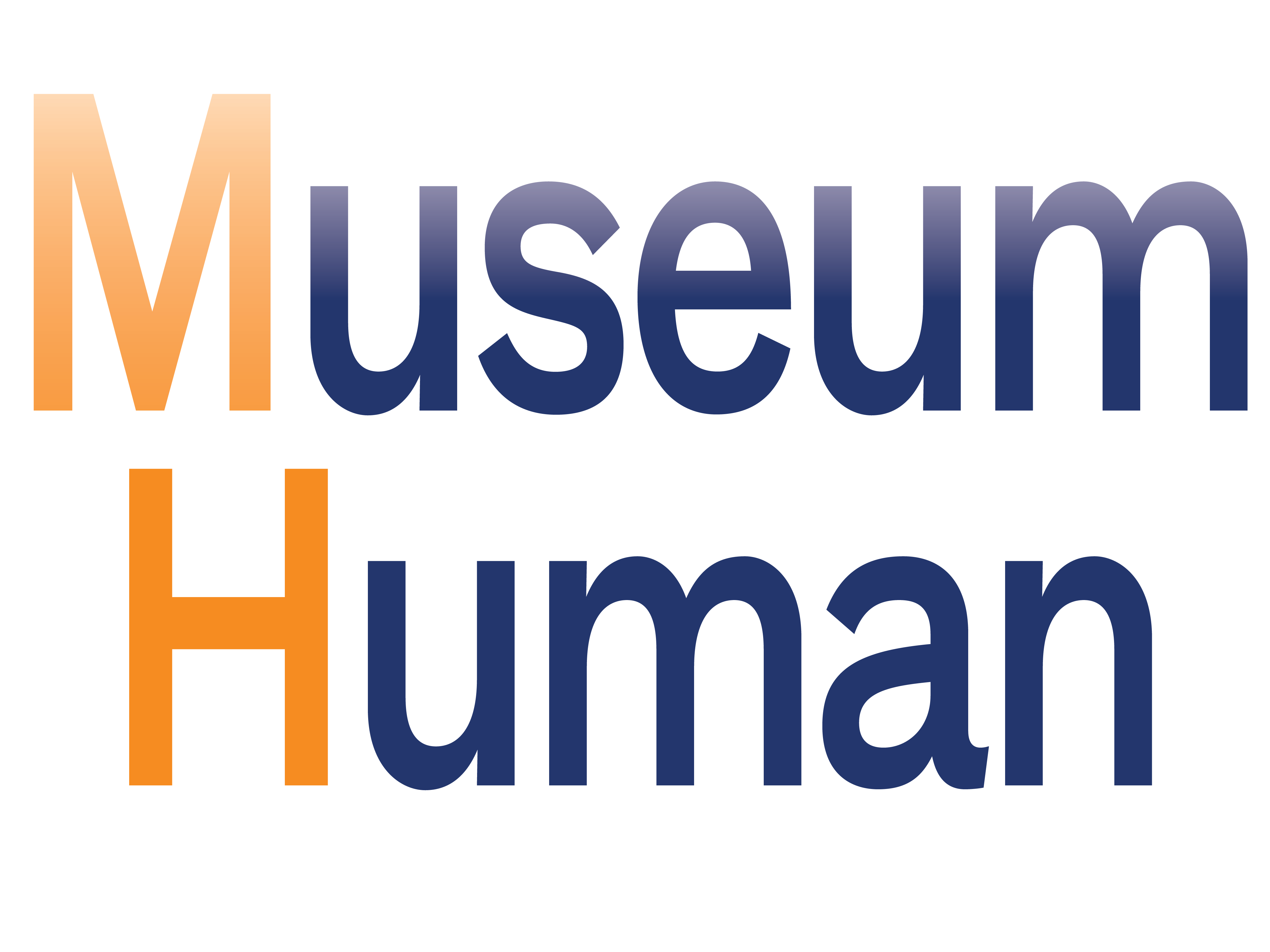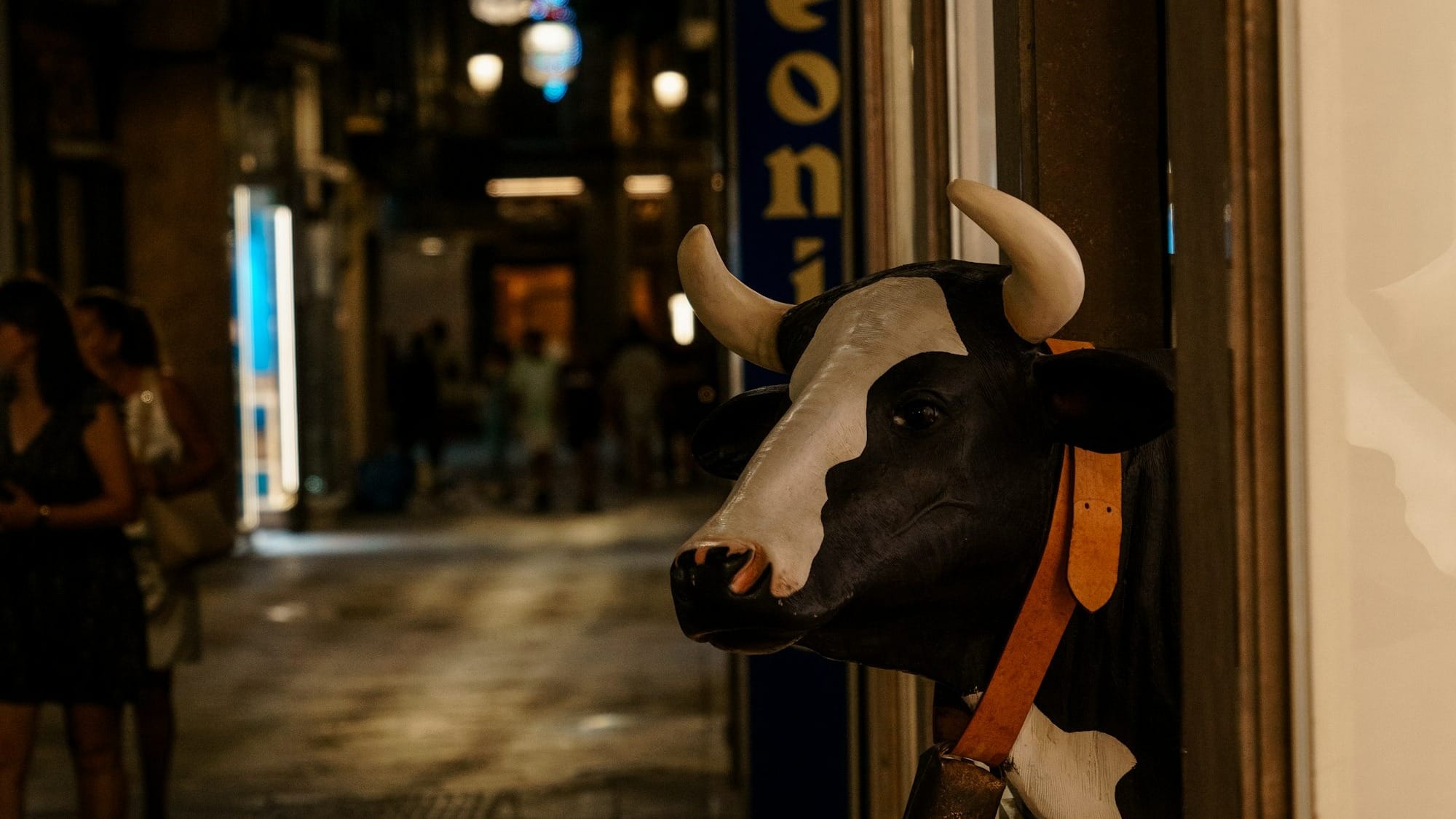
Museums are full of mindsets, like most organizations. What behaviors are being excused?
If you're reading this and not a subscriber to Museum Human, consider scrolling to the bottom and signing up now—it's free and is the only way to read the site's longer weekly post on the organizational culture of cultural organizations.
The current popular view of mindsets came from the book of the same name by Carol Dweck: that there are growth and fixed mindsets, the former allowing people to absorb new information, the latter keeping them in place, sure that they already know everything that they need to. Not suprisingly, Dweck's work was oversimplified and moneitzed into a own cottage industry full of mindset metaphors about growth and stagnation, to the point that even she regretted the clickbait version of her research. But what's undoubtedly true is that people build narratives around particular views of themselves and the world.
The scarcity mindset in museums, for instance, is real. There's never enough Time, Money, People, and Resources. In addition, there's our non-privilege below the leadership level (we don't work in medicine, law, finance, politics), the whiteness of the field (all other cultures are others to be collected), the obsession with expertise and smarts, among other ways of viewing the world.
Together they tell a story about what museum work is. But all of these put up a wall around authentic exploration and listening to everyone's collective and individual stories. Here are a few links about some of the masks organizations are wearing now.
Let's start with abundance, usually presented as the counterpoint to scarcity mindset. This article from Medium writer Jessica Wildfire delves into how abundance is peddled by the already-rich to individualize failure. It's a laundry list of the positive-thinking pyramid schemes of an extractive society. Here's one:
Right now, corporations and their super rich managers receive staggering amounts of cash. They receive this money because Americans and their politicians choose to believe myths about success.
The biggest myth of all?
It’s that wealth and success are personal endeavors. They’re not. The billionaires everyone worships enjoyed extreme advantages. In case you didn’t know, Jeff Bezos got a $250,000 “loan” from his parents to start Amazon. That’s roughly $400,000 in today’s money. Now he runs a company that strips healthcare from their workers and commits intellectual property theft under the guise of startup sponsorship.
This is important for museum workers who think that only their hard work and intellect got them to where they are.
Another mindset which might not seem so pernicious is design. What could be wrong with wanting to make beautiful things, whether products, experiences, or processes? But when tied up in expertise and privilege, when centering the designers and not the whole of audience and society, it leads to many ethical lapses, as detailed in this Twitter thread by Cyd Harrell. The prompt was a Fast Company article on the degradation of UX design, then other protocols-turned-mindsets like agile, and finally the use of design thinking as a "you can design too!" mindset of privilege (by creating levels of design intended for those of certain backgrounds or those able to afford expensive design courses and consultant).
The usefulness of threads and articles like this is that they can help the reader hold up a mirror to their own privileges, to their own use of mindsets and jargon. I'm a personal fan of design thinking but I know now to watch my use of the term as a way of building up my own reputation in the organization.
Museums have a lot of seeing the world through action—in retail. Seema Rao often says it all in a single tweet:
I wonder why so many companies went with pride merchandise instead of better inclusion policies?
— seema r (@artlust) June 3, 2021
Call this the High Street mindset, where organizations manifest themselves through shopping as the ultimate statement of togetherness and empowerment. The hard and meaningful work, of course, is changing the people inside the institution, which of course is a mindset that destroys the previous one. A transformed museum will relate to the public in more ways than just the store. What does it take for an institution to obliterate its old ways? A lot of people with privilege stepping down from their pedestals.
If you read Umair Haque on Medium or Twitter you've seen his daily exposure of the fascist mindset around power and powerlessness—not just enacting authoritarian policies but excusing them. This article goes deeper into the powerlessness that most people feel, on purpose, to benefit the small number of those who have it.
Now I've written before that most museum workers do in fact have power—after all, most people in the museum field are white, with elite educations and some degree of family wealth that allowed them to choose a less-renumerative kind of work. But that's part of the powerlessness mindset, Haque would say.
The pandemic showed how close much of the field is to ruin and depredation—though many museum workers had resources to fall back on, as it is non-white workers who bore the brunt of layoffs if they hadn't already been driven from the field by racism. Power, of course, is the money to live, but the return to a normalcy shows, to quote Haque:
the second form of power that I can think of [is the] ability to override a social consensus.
If the consensus among the vast majority of museum workers is that a flexible work schedule is fairer and more humane, then leaders are exercising their power to say that fairness is getting back to the museum so we can all work together in the same place. Suddenly, museums are centering the workers who have no choice but to be on site, as a reason for more staff to return to the workplace. But is that a false mindset of equality?
It's the power to make people overwork in the name of ambition, as per org culture guru Stowe Boyd. This busyness mindset is part of the "smart America" cited by Boyd in this essay by George Packer in The Atlantic. There are four Americas, according to Packer, and the museum field is seeing its elite leadership (Smart) fighting off the younger and (especially non-white) activist America (Just), while the ultrarich libertarians of Free America (museum board members, anyone?) use the battering ram of white supremacist (Real) America to undo government regulation.
Is the goal to unite the four Americas or to see that Just America can overcome the revanchist alliance of Free and Real America with the white supremacist legacies of Smart America? Boyd's thoughts:
I hold out hope for the promise implicit in the desire for justice in Just America, while Packer has set himself the greater task of hoping for reunification of all four Americas, and he sees Just America as a potential impediment to that end. I disagree, but like Packer, I see a difficult road ahead, in the corporate workplace and across society, at every scale.
Boyd, like me, seems to think that Smart America (museum leadership) is more afraid of so-called "cancel culture" than in the authoritarian onslaught of the Free/Real alliance. (Read a takedown of Packer's article, accusing it of classism by ignoring working-class America which is neither the Smart elite nor the Just social warriors, here. I don't fully agree, but it's a decent counterpoint. At any rate, both Packer and Eric Levitz of New York magazine are Smart America.)
I'll end this LOTW with one more swipe at the individualist mindset, with this article about the CDC's end of mask mandating, also from The Atlantic. Are programs to return workers to offices falling into the same trap of the individual over the public good? Ed Yong writes:
Framing one’s health as a matter of personal choice “is fundamentally against the very notion of public health,” Aparna Nair, a historian and anthropologist of public health at the University of Oklahoma, told me. “For that to come from one of the most powerful voices in public health today … I was taken aback.”
So many people now are concerned with themselves, what they are going to do now that they're vaccinated and the pandemic seems over. Yong continues:
“From the very beginning, I’ve thought that the way we’ve dealt with the pandemic reflects our narrow focus on the individual,” Camara Jones, a social epidemiologist at Morehouse School of Medicine, told me.
This is important because those who are anxious about returning to work, to commuting, to the purchasing mindset described above, keep getting the message you're vaccinated, you're safe, rather than society is not yet safe. To continue:
that problem — that collective behavior was starting to change against collective interest — shows the weaknesses of the CDC’s decisions. Science doesn’t stand outside of society,” Cecília Tomori, an anthropologist and a public-health scholar at Johns Hopkins, told me. “You can’t just ‘focus on the science’ in the abstract,” and especially not when you’re a federal agency whose guidance has been heavily politicized from the get-go. In that context, it was evident that the new guidance “would send a cultural message that we don’t need masks anymore,” Tomori said. … “If you’re blaming the public for not understanding the guidance — wow,” Duke’s Gavin Yamey said. “If people have misunderstood your guidance, your guidance was poor and confusing.”
That last sentence is an important one for museum leaders. If your workers are anxious, it's not because of the pandemic—it's because of your leadership and not just your narratives. A final excerpt from Yong's article, with added emphasis from me:
During a pandemic, “someone taking all the personal responsibility in the world may still be affected by a lack of coordinated safety,” [Julia] Raifman [a health-policy researcher at Boston University] said. … As Eleanor Murray, an epidemiologist at Boston University, said on Twitter, “Don’t tell me it’s “safe”; tell me what level of death or disability you are implicitly choosing to accept.” When Rochelle Walensky said, “It’s safe for vaccinated people to take off their masks,” she was accurate, but left unaddressed other, deeper questions: How much additive burden is a country willing to foist upon people who already carry their disproportionate share? What is America’s goal — to end the pandemic, or to suppress it to a level where it mostly plagues communities that privileged individuals can ignore?
And that is the mindset those of us in museums have to guard against the most—in ourselves. The sense that because we work in museums, we're Smart and good and right. We need to be more Just, as well.
Enjoy the links, and if you haven't taken this short survey about museums and flexible/remote/hybrid work in museums, please take just a minute and do so now. I'd love to have some reader data on this topic which appears so much in Museum Human. Results will be shared next week.
If you're reading this and not a subscriber to Museum Human, consider signing up for a free subscription below—it's the only way to read the site's longer weekly post on the organizational culture of cultural organizations. Thank you for reading!
cover image by Tamanna Rumee on Unsplash [description: a circle of paper clips on a blue background]

Links of the Week: June 17, 2021: Mindsets, revisited by Robert J Weisberg is licensed under a Creative Commons Attribution-NonCommercial-ShareAlike 4.0 International License.







